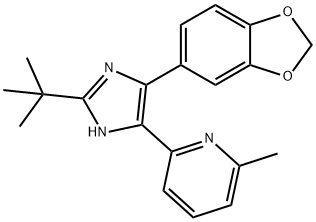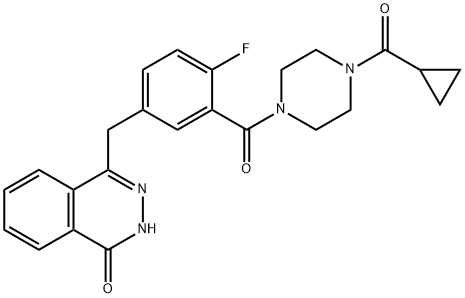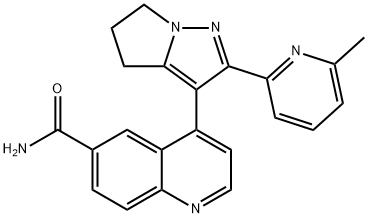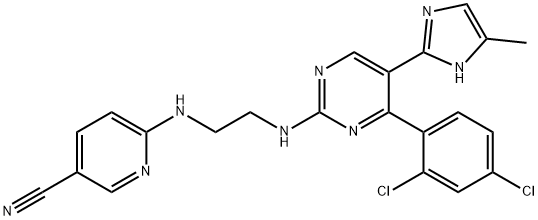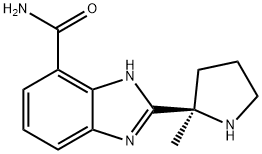SB505124 , ≥98% , 694433-59-5
Synonym(s):
2-(5-Benzo[1,3]dioxol-5-yl-2-tert-butyl-3H-imidazol-4-yl)-6-methylpyridine hydrochloride hydrate
| Pack Size | Price | Stock | Quantity |
| 10MG | RMB829.60 | In Stock |
|
| 50MG | RMB2905.60 | In Stock |
|
| others | Enquire |
PRODUCT Properties
| Melting point: | 168 °C |
| Boiling point: | 509.7±50.0 °C(Predicted) |
| Density | 1.202 |
| storage temp. | Sealed in dry,2-8°C |
| solubility | DMSO: >10mg/mL |
| pka | 11.26±0.10(Predicted) |
| form | powder |
| color | yellow |
Description and Uses
SB-505124 inhibits the TGF-
SB-505124 inhibits the TGF-β1 receptor serine/threonine kinase ALK5 with an IC50 value of 47 nM. Though it is a less potent antagonist of ALK4 (IC50 = 129 nM) and ALK7, SB-505124 selectively and concentration-dependently inhibits ALK4-, ALK5-, and ALK7-dependent activation of downstream SMAD2 and SMAD3 and TGF-β–induced MAP kinase pathway components without altering ALK1-3 or ALK6-induced SMAD signaling. In an assay determining in vitro phosphorylation of SMAD3, SB-505124 is more potent than SB-431452 with IC50 values of 47 versus 94 nM, respectively.
Safety
| Symbol(GHS) |  GHS07 |
| Signal word | Warning |
| Hazard statements | H315-H319-H335 |
| Precautionary statements | P261-P264-P271-P280-P302+P352-P305+P351+P338 |
| Hazard Codes | Xi |
| Risk Statements | 36/37/38 |
| Safety Statements | 26-36 |
| WGK Germany | 3 |
| HS Code | 29349990 |

